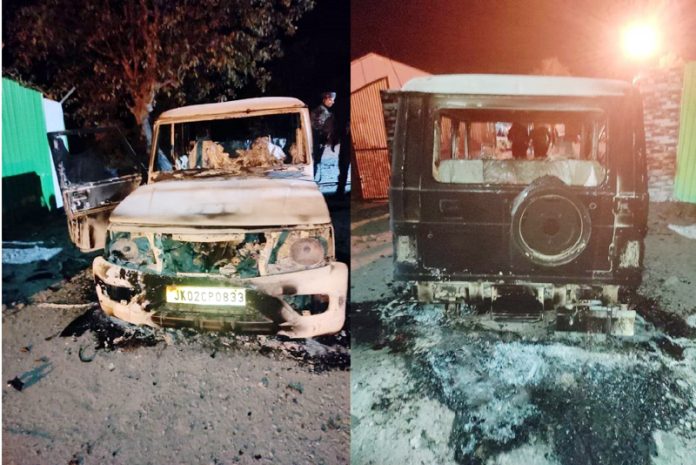The brutal killing of six construction workers and a doctor in Sonamarg’s Gagangir area has shaken the nation. It is a tragic reminder of the lingering spectre of militancy in Jammu and Kashmir, a region marred by decades of conflict. This despicable attack, which targeted unarmed civilians working on a vital infrastructure project, is not only an assault on the lives of innocent individuals but also on the spirit of progress and development in the valley. As the nation mourns the loss of these lives, it is crucial to assess the implications of such acts of terror and the measures necessary to curb this menace once and for all.
The horrifying incident unfolded when militants barged into the mess of a private company working on the Z-Morh tunnel in Sonamarg, Ganderbal district. The victims, including workers from Punjab, Bihar, Madhya Pradesh, and Jammu, along with a doctor from Budgam, were dining when the militants opened fire. They were not armed security personnel or political figures, but ordinary civilians striving to earn a living by contributing to a project that would ultimately benefit the region’s economy. Tragically, seven people lost their lives, and five others were critically injured in the attack, with their lives hanging in the balance as they received treatment at the SKIMS hospital in Srinagar. This is not an isolated incident. It follows a pattern of attacks on migrant workers in the region. Just days earlier, a labourer from Bihar was found shot dead in Shopian. Such acts are designed to instil fear, disrupt development, and prevent the integration of migrant workers into the region’s socio-economic fabric.
The Z-Morh tunnel, where this tragic incident occurred, is a critical infrastructure project aimed at improving connectivity to the famous tourist destination of Sonamarg. It is part of the broader push towards economic development in Jammu and Kashmir, facilitating year-round access to the region, promoting tourism, and providing employment to hundreds of workers, both local and non-local. Attacks like this one are intended to stall progress, derail development projects, and send a message of defiance against peace and normalcy. For decades, Jammu and Kashmir has suffered due to militancy, with terrorists targeting not just security personnel but also civilians, including migrant workers, traders, and professionals. These civilians, who travel from different parts of the country, often become soft targets for militants seeking to disrupt any semblance of normalcy or economic progress in the region.
The human cost of this attack is deeply distressing. The victims were fathers, sons, and husbands-individuals who left their homes in search of work to support their families. They represented the fabric of a diverse India, where people from various states travel to different parts of the country, contributing to local economies and development efforts. Their deaths are not just personal tragedies for their families but also a blow to the ideal of national integration. One of the victims, Dr Shawnawaz from Budgam, was a medical professional working at the construction site. Another victim of this cowardly terror attack is Shashi Abrol, a Jammu resident and tunnel designer working on the Gagangir-Sonamarg tunnel project. In addition to the dead, the five injured workers remain in critical condition. The trauma they have endured will not heal quickly. The survivors, their families, and their communities will live with the scars of this attack for years to come. Acts of terrorism always have a ripple effect-destroying not only individual lives but also spreading fear and distrust in society.
Terrorists and their cross-border supporters are deeply disturbed by the successful establishment of a democratic government in Jammu and Kashmir. The high voter turnout, the participation of candidates with separatist backgrounds, and even the involvement of Jamaat-e-Islami candidates running as independents have become significant points of contention for those opposed to peace and progress in the region. Additionally, the major infrastructure projects initiated over the past decade, along with a booming influx of tourists and the vibrant, late-night life observed in key tourist spots, have further unsettled these adversaries.
However, this attack serves as a grim reminder that the fight against terrorism is far from over. While security forces have made significant strides in curbing militancy in the region, incidents like this demonstrate that terrorists remain a potent threat. The recent twin attacks on non-locals within a matter of days serve as a grim reminder that terrorism still has deep, entrenched roots in the region. It will require extraordinary and sustained efforts to eradicate this menace. Every major event in Kashmir is often followed by a significant terrorist attack; this time, it was the Srinagar Half Marathon. Security agencies must rethink their strategies to counter these evolving terror tactics. Militants are shifting their sequence of attacks from Kashmir to Jammu and now again spurt in Kashmir Division. These patterns are quite serious and require immediate attention from the highest security authorities. The modus operandi of the terrorists has become predictable, making it imperative that countermeasures are deployed without delay. Ensuring the safety of migrant workers through increased security measures at construction sites, labour camps, and other vulnerable locations is essential.
Terrorists aim to divide society, spread fear, and disrupt the process of development. However, efforts to promote development in Jammu and Kashmir must continue undeterred. The Z-Morh tunnel, along with other infrastructure projects, is vital for the long-term economic prosperity of the region. Despite the efforts of militants to hinder progress, the government must reaffirm its commitment to completing these projects and ensuring the safety of all workers involved. The path to peace in Jammu and Kashmir has been long and fraught with challenges, but it is a path that must be pursued relentlessly. Terrorists cannot be allowed to dictate the future of the region. The victims of this senseless act of violence serve as a rallying cry for justice, peace, and the continued fight against terrorism. Terrorism has no place in any society and J&K is no exception.
Trending Now
E-Paper


